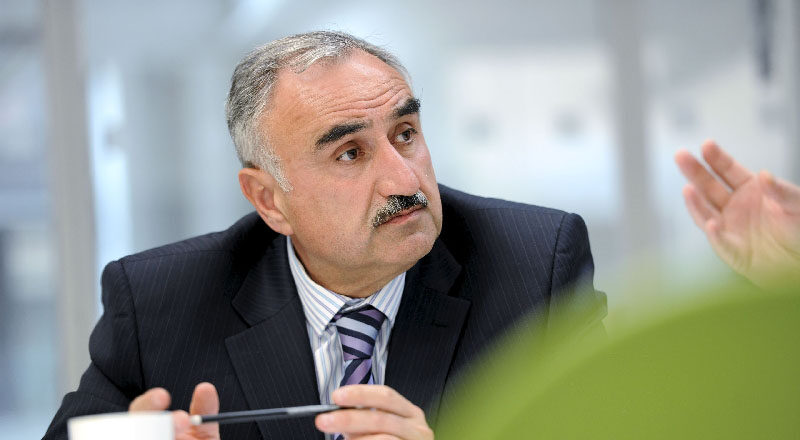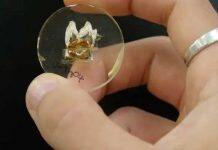Teesside University is to take part in ground-breaking research projects to decarbonise the industrial sector.


Working alongside Durham University, a team of academics from Teesside University will work on two collaborative research projects as part of the Industrial Decarbonisation Research and Innovation Centre (IDRIC)
IDRIC has received £20m from UK Research and Innovation (UKRI) Research and Innovation Centre as part of the Industrial Strategy Challenge Fund programme to decarbonise the industrial sector.
The world-leading, high-impact research and innovation centre will act as the national focal point and international gateway for UK industrial decarbonisation from its virtual base at Heriot-Watt University’s Edinburgh campus.
IDRIC will work closely with the UK’s major industrial clusters to address the challenges of industrial decarbonisation alongside a diverse range of over 140 partners as part of a drive to create the world’s first net-zero emissions industrial cluster by 2040 and four low-carbon clusters by 2030.
As part of the collaboration between Durham and Teesside Universities, Professor Nashwan Dawood, Associate Dean (Research and Innovation) at Teesside University leads a project on Smart Decision Modelling (SDM) Tool for Industrial Cluster Decarbonisation along with Dr Huda Dawood and Dr Ruben Pinedo-Cuenca.
Professor Tony Roskilly, Director of Durham Energy Institute leads a project related to Integrated Energy System Planning Tool for Net-Zero Industrial Clusters with Dr Andrew Smallbone and Dr Janie Ling-Chin.
The two projects are integrated and will involve Teesside Industrial Cluster and will run concurrently between teams from Durham and Teesside universities.
Professor Dawood said: “We are very excited to work with Professor Roskilly and his team to develop solutions for net-zero solutions to provide strategies to decarbonise industrial clusters in the UK and, more specifically, the Teesside cluster. Both Durham and Teesside Universities have complementary skills and have developed creditable research projects that merit funding by UKRI and we look forward to seeing this relationship develop further.”
Professor Roskilly said: “The vision of IDRIC is to ensure that our world-leading research and innovation is applied in our key industrial cluster areas, to accelerate UK decarbonisation and to boost UK industrial productivity. We are delighted to lead the academic activity at Teesside, and this award will further complement our existing programmes in hydrogen transportation development and the decarbonisation of heating and cooling”.
“WE ARE VERY EXCITED TO WORK WITH PROFESSOR ROSKILLY AND HIS TEAM TO DEVELOP SOLUTIONS FOR NET-ZERO SOLUTIONS TO PROVIDE STRATEGIES TO DECARBONISE INDUSTRIAL CLUSTERS IN THE UK AND, MORE SPECIFICALLY, THE TEESSIDE CLUSTER.”
Professor Nashwan Dawood
Durham Co-Investigator, Dr Janie Ling-Chin added: “We look forward to working closely with Professor Nashwan Dawood and other colleagues at Teesside University as well as our industrial partners to explore high-level planning scenarios whilst investigating energy systems and the interaction between different energy vectors, which will support local and national efforts for decarbonising the industrial clusters in the UK.”
IDRIC will integrate best use of challenge-led research, transformative innovation, knowledge sharing and nurturing talent. The multidisciplinary research and cross-cutting activities undertaken by the centre will include carbon capture and storage, hydrogen, gasification, policy, economic, institutional and regulatory analysis, and knowledge exchange. A whole systems approach that integrates environmental, engineering and technical solutions alongside social and economic dimensions is critical to the delivery of industrial decarbonisation.
IDRIC will be headed by the UKRI’s Industrial Decarbonisation Champion Professor Mercedes Maroto-Valer who will drive industrial decarbonisation as part of the UK’s journey to net-zero. Commenting on the funding for the new centre, she said: “I am delighted to lead IDRIC, the UK research and innovation hub for industrial decarbonisation that will set the foundations for the new industrial clusters of tomorrow. The 2020s will be key for the UK to set the pathway to meet its carbon targets and IDRIC will play a key role to accelerate the decarbonisation of industrial clusters. Working with the research and innovation community, we will demonstrate our international competitiveness to realise the opportunities offered by economies of scale in decarbonising industrial clusters and driving new business models.”








































